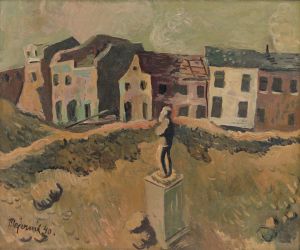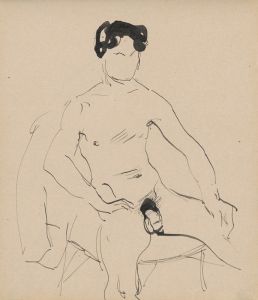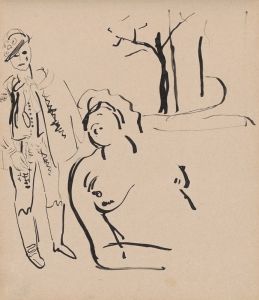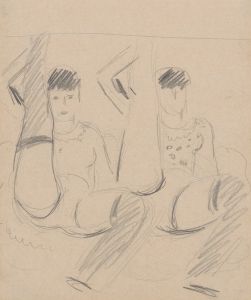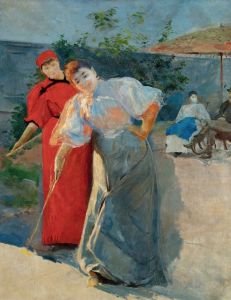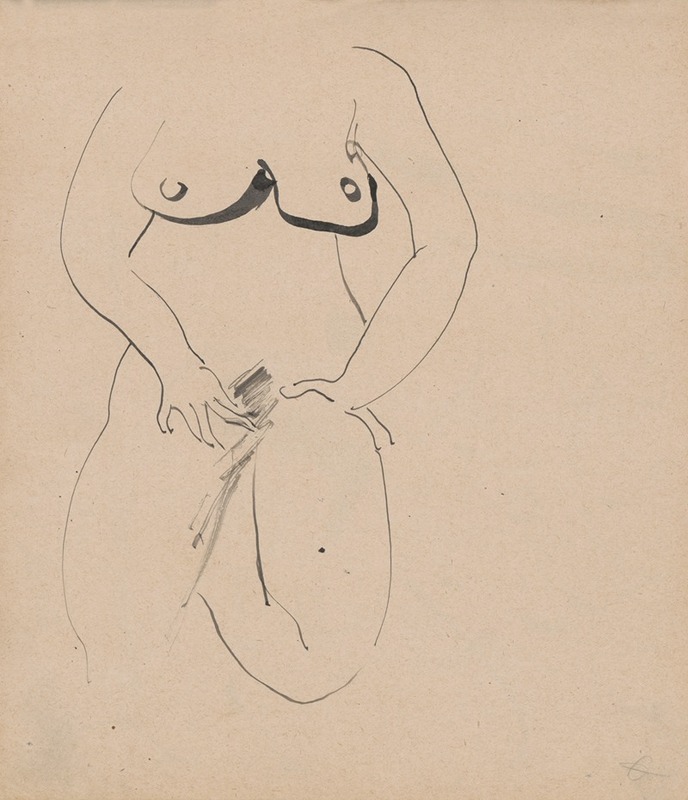
Skicár
A hand-painted replica of Cyprián Majerník’s masterpiece Skicár, meticulously crafted by professional artists to capture the true essence of the original. Each piece is created with museum-quality canvas and rare mineral pigments, carefully painted by experienced artists with delicate brushstrokes and rich, layered colors to perfectly recreate the texture of the original artwork. Unlike machine-printed reproductions, this hand-painted version brings the painting to life, infused with the artist’s emotions and skill in every stroke. Whether for personal collection or home decoration, it instantly elevates the artistic atmosphere of any space.
Cyprián Majerník was a Slovak painter known for his poignant and expressive works, often reflecting the socio-political turmoil of his time. Born on November 24, 1909, in Veľké Kostoľany, Majerník became an influential figure in Central European art during the early to mid-20th century. His work is characterized by its emotional depth and often somber themes, influenced by the political instability and the impact of World War II on Europe.
One of Majerník's notable works is "Skicár," which translates to "Sketchbook" in English. This piece is a reflection of Majerník's unique style and thematic concerns. While specific details about "Skicár" are limited, it is understood to be part of his broader oeuvre that often depicted scenes of human struggle, existential angst, and the absurdity of war. Majerník's art frequently employed a muted color palette, with a focus on form and composition that conveyed a sense of melancholy and introspection.
Majerník studied at the Academy of Fine Arts in Prague, where he was influenced by both his contemporaries and the broader European art movements of the time. His work often drew from Expressionism, a movement that emphasized the expression of emotional experience rather than physical reality. This influence is evident in the way Majerník captured the psychological states of his subjects, often portraying them in moments of tension or contemplation.
Throughout his career, Majerník's work was deeply affected by the political climate of Europe. The rise of fascism, the outbreak of World War II, and the subsequent occupation of Czechoslovakia by Nazi Germany left a profound impact on his art. His paintings from this period often reflect a sense of despair and helplessness, capturing the collective anxiety of a continent in turmoil.
Despite the challenges he faced, including a battle with multiple sclerosis, Majerník continued to produce art that resonated with the human condition. His ability to convey complex emotions through his work earned him recognition and respect among his peers and art critics alike. Majerník's paintings are noted for their ability to transcend specific historical contexts, speaking to universal themes of suffering, resilience, and hope.
Cyprián Majerník passed away on July 4, 1945, in Prague, leaving behind a legacy of art that continues to be studied and appreciated for its emotional depth and historical significance. His work, including pieces like "Skicár," remains an important part of Slovak and Central European art history, offering insight into the human experience during one of the most tumultuous periods of the 20th century.
While detailed information about "Skicár" itself is scarce, it is representative of Majerník's broader artistic vision and his commitment to exploring the complexities of human emotion through his art. His contributions to the art world continue to be celebrated, and his works are preserved in various collections, serving as a testament to his enduring impact on the cultural landscape.









